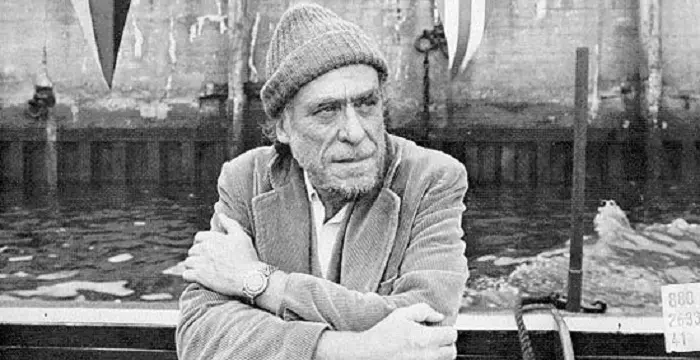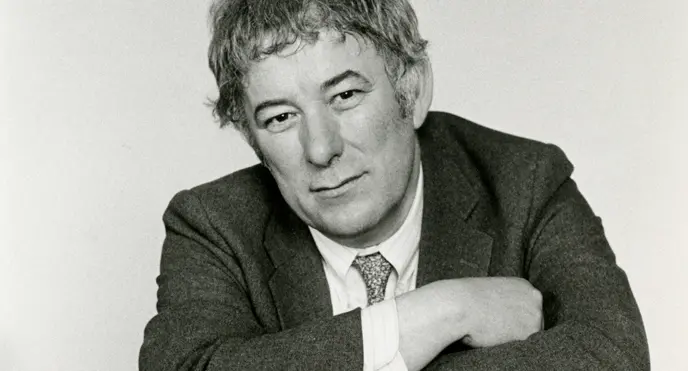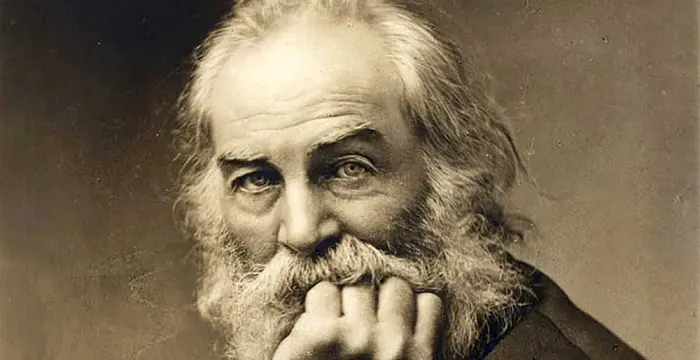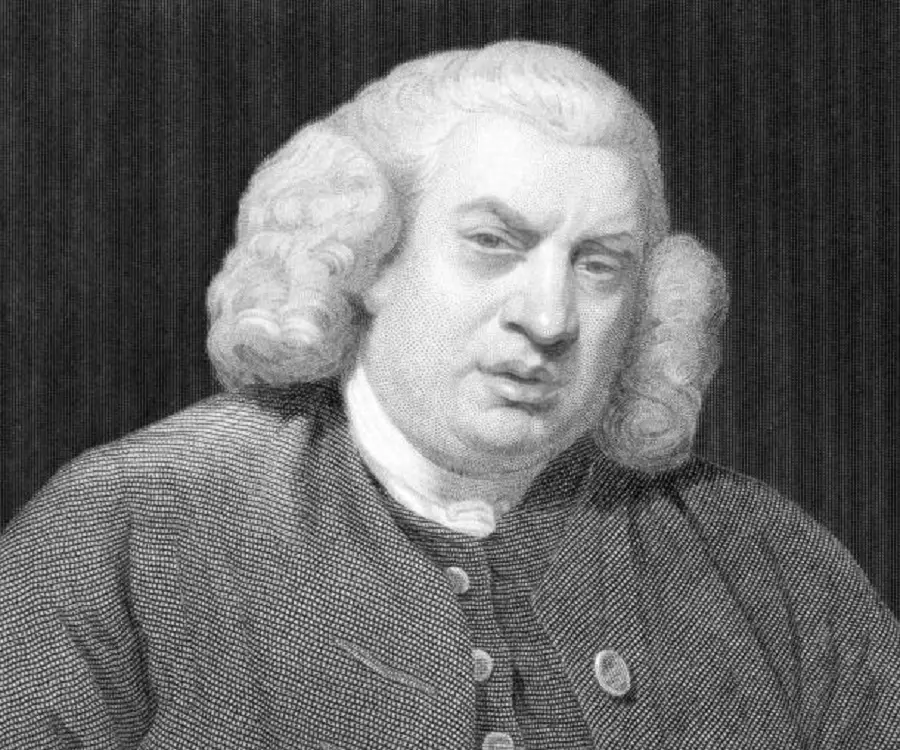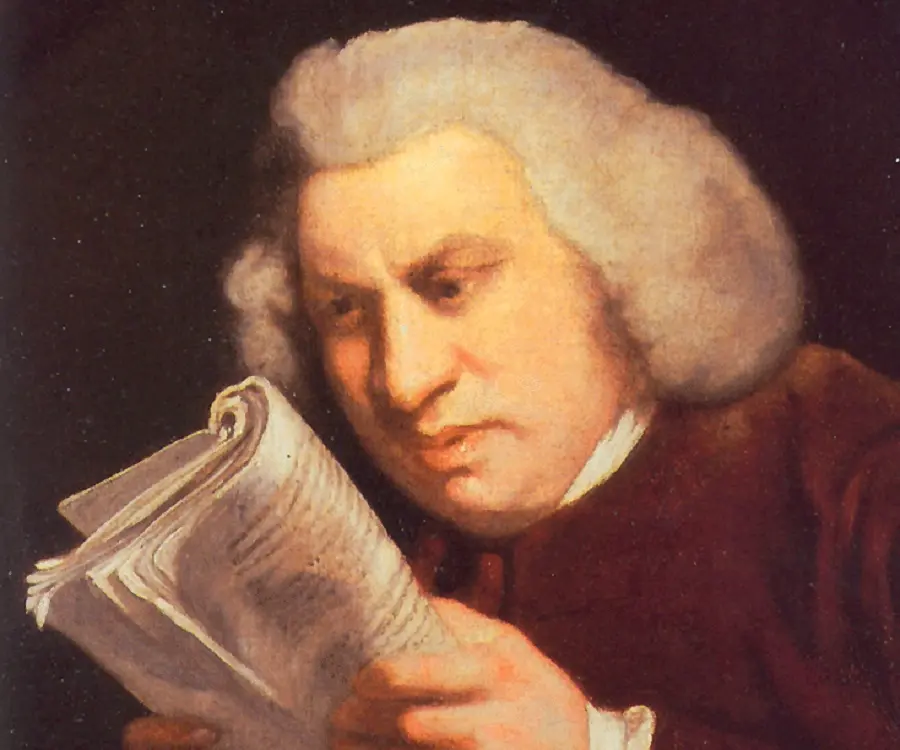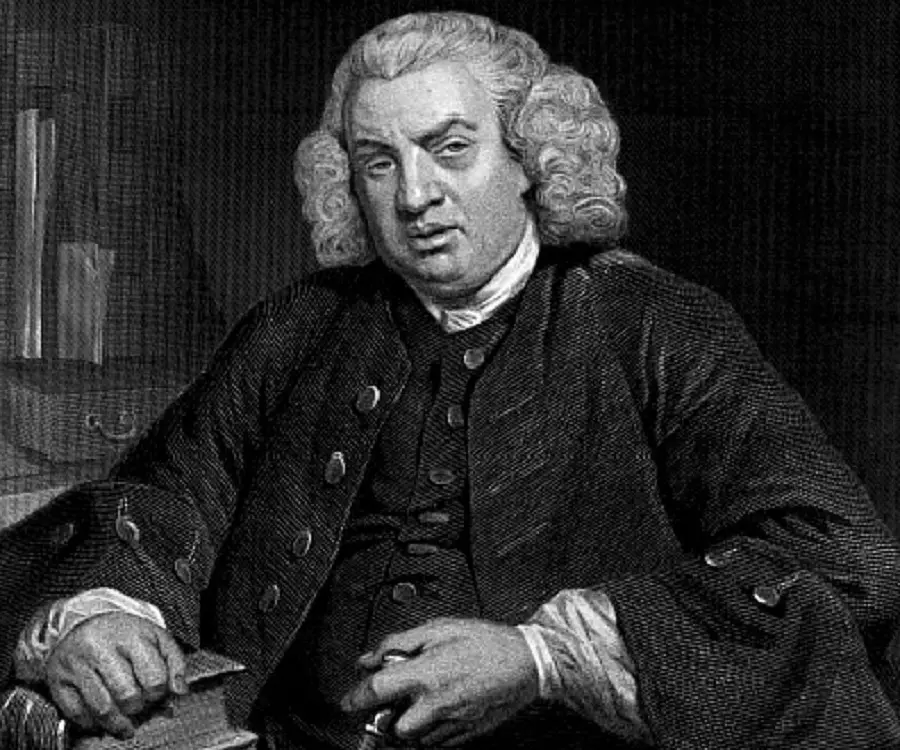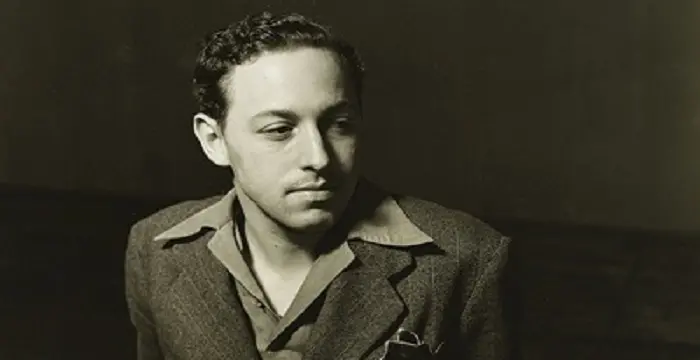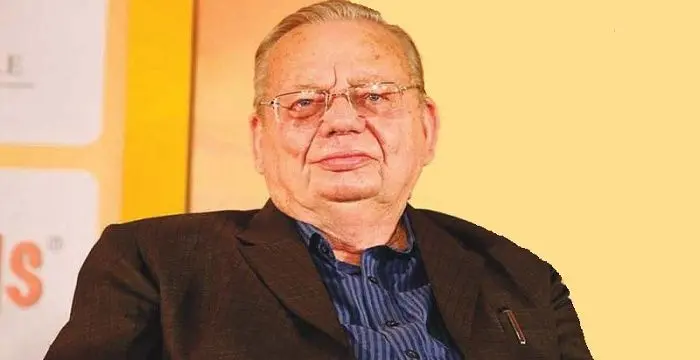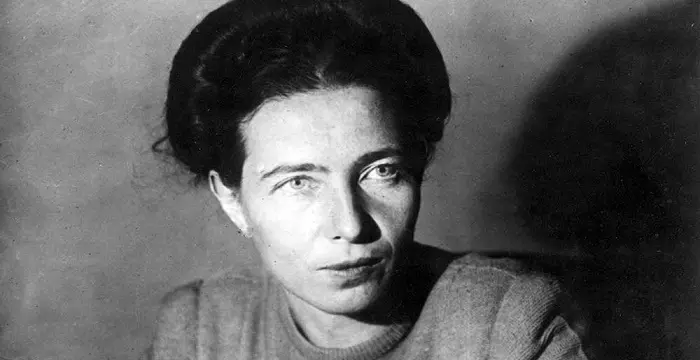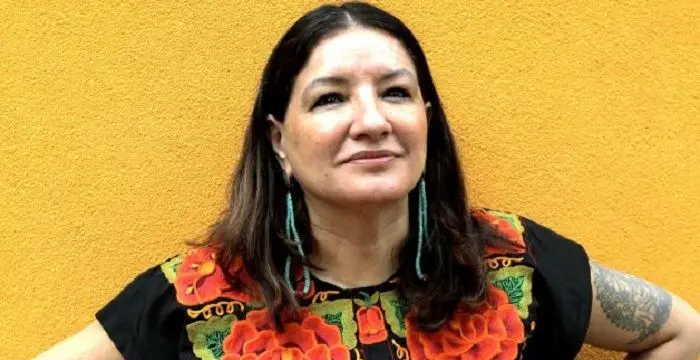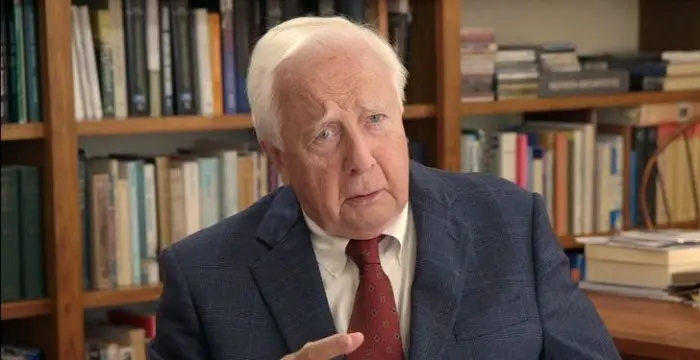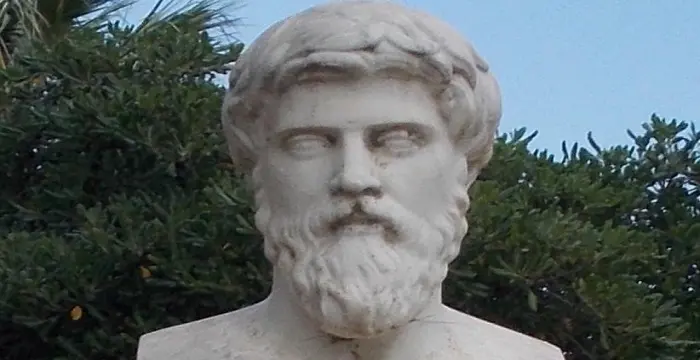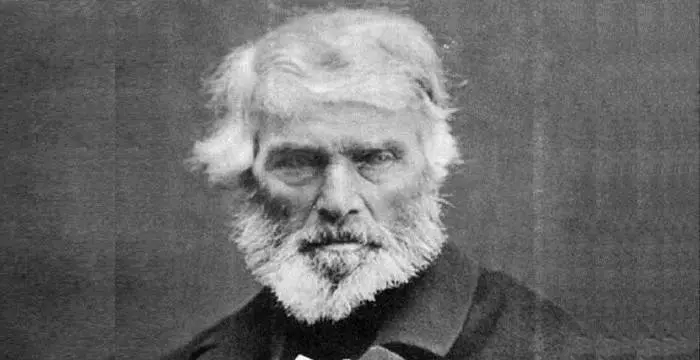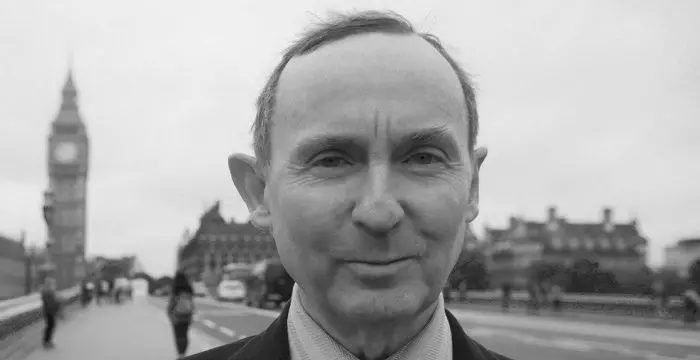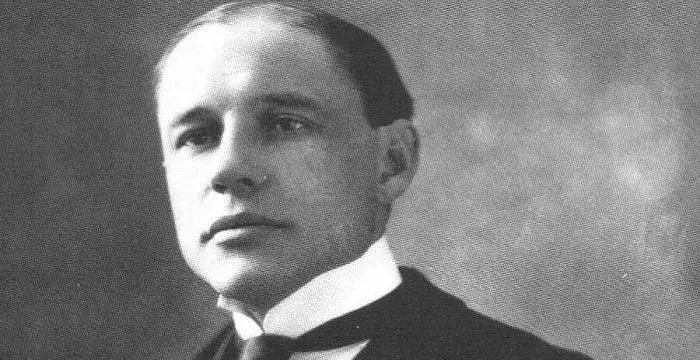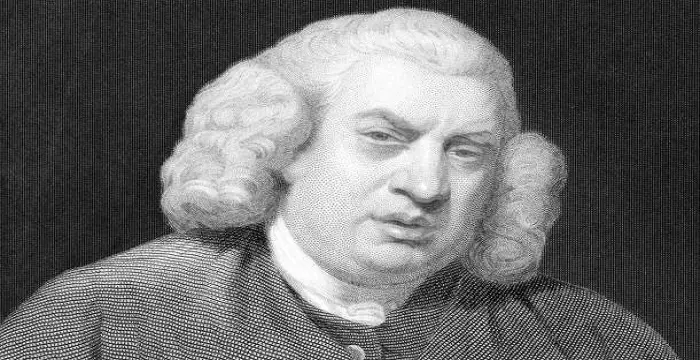
Samuel Johnson - Essayists, Timeline and Childhood
Samuel Johnson's Personal Details
Samuel Johnson was a great English writer, poet, essayist, critic and lexicographer
| Information | Detail |
|---|---|
| Birthday | September 18, 1709 |
| Died on | December 13, 1784 |
| Nationality | British |
| Famous | Writers, Poets, Essayists, Biographers |
| Spouses | Elizabeth Porter |
| Universities |
|
| Birth Place | Lichfield, United Kingdom |
| Religion | Anglican/Episcopalian |
| Gender | Male |
| Father | Michael Johnson |
| Mother | Sarah Ford |
| Sun Sign | Virgo |
| Born in | Lichfield, United Kingdom |
| Famous as | Writer |
| Died at Age | 75 |
// Famous Poets
Charles Bukowski
Charles Bukowski was a German-born American novelist, short story writer and poet. With this biography, learn in details about his childhood, life, works, career and timeline
Seamus Heaney
Nobel Laureate Seamus Heaney was an Irish poet, playwright and translator. Know about his profile, childhood, life and timeline in the biography below.
Walt Whitman
Walt Whitman was an American poet, journalist and humanist. Read this brief biography to find more on his life & timeline.
Samuel Johnson's photo
Who is Samuel Johnson?
Samuel Johnson was a prolific English writer, poet, essayist, critic, biographer and lexicographer. After attending a year in Pembroke College Oxford, he dropped out owing to financial constraints. However, he still went on to make an impact as a teacher and writer in his early career. He wrote several articles and biographies in ‘The Gentleman’s Magazine’, and later wrote poems and the famous play ‘Irene’, but one of his most notable works came after an endeavour of nine years, when his book ‘A Dictionary of the English Language’ was published, the first of its kind to precede ‘The Oxford Dictionary’ which was published nearly 150 years later. Towards the latter end of his career, he became more of a literary critic and an essayist. Since childhood he suffered from the ‘Tourette Syndrome’ that caused frequent involuntary tics and odd physical gestures, yet his talent and wit transcended such physical barriers. He is also proclaimed as the greatest literary critic of all time.
// Famous Writers
Joyce Meyer
Joyce Meyer is a Christian author and speaker. This biography provides detailed information about her childhood, life, achievements, works & timeline
Temple Grandin
Temple Grandin is a well-known American writer, autistic activist and animal expert. This biography profiles her childhood, life, achievements, career and timeline
Tennessee Williams
Tennessee Williams was one of the greatest playwrights of the 20th century. This biography of Tennessee Williams provides detailed information about his childhood, life, achievements, works and timeline.
Childhood & Early life
Samuel Johnson was born on 18th September 1709 at Lichfield, Staffordshire in England. He was born at home with the aid of a man-midwife and a reputed surgeon. Though he wasn’t a healthy baby, he gradually picked up health.
Samuel’s parents, Sarah and Michael had a stable financial status, yet the couple weren’t well off.
Misfortune struck their family when Samuel acquired scrofula commonly termed as the ‘King’s Evil’ when he was a young boy. A surgery had to be performed which left irrevocable scars on his face and body in 1712. In a couple of years, his parents had another child and they named him Nathaniel.
His mother was his first teacher; she would make him memorise verses from the ‘Book of Common Prayer’ at the age of three. At seven, he attended ‘Lichfield Grammar School’.
It was during this time that he gradually began suffering with tics. However, he was so intelligent that his parents took great pride in boasting about his achievements.
At sixteen he enrolled in the ‘King Edward VI grammar school’ and began writing poetry. He lived with his cousins since his school was near Pedmore, Worcestershire.
Upon returning home, he was faced with trying times. His father was in huge debt, thus Johnson had to assist his father by stitching books at his bookstore. However, by the grace of his aunt, Elizabeth Harriotts he was able to attend college since she left him money for his education after her death.
In 1728, he enrolled in ‘Pembroke College, Oxford. However, his funds were insufficient and after attending for thirteen months he left.
A Teacher & Writer
With time his Tourette syndrome got worse. Around the same time his father developed an inflammatory fever that claimed his life in 1731. Soon after, Samuel Johnson became an undermaster at the ‘Market Bosworth’ School.
He found happiness in teaching even though it was mundane at times. After leaving his job as a teacher at ‘Market Bosworth’ he wrote ‘A Voyage to Abyssinia’. In 1735, he began working at a local school in Staffordshire.
In 1735 he opened his own school ‘Edial Hall School’, which was a private academy. However, he could gather only three students and had to shut it down.
In order to get his career rolling, he began writing his most appreciated work, the tragedy ‘Irene’. In 1737, he moved to London and in October began writing for ‘The Gentleman’s Magazine’.
The following year, he published his first poem ‘London’ anonymously. For several years Samuel endured hardships along with his friend Richard Savage. On Richard’s death in 1744, he wrote a moving biography of him named ‘Life of Mr. Richard Savage’, which became widely popular.
An Established Author
He was approached by publishers in 1746 to create a dictionary of the English Language, which would pay him 1,500 guineas. He claimed that he would finish it within three years. However, the data was so large that it took him almost eight years to compile the contents.
His dictionary became one of the most widely used references before ‘The Oxford Dictionary’, and thus earned him much credit and was published in 1755.
Along with the dictionary he worked on several essays, poems and sermons. And what followed was sheer brilliance in the form of a collection of essays titled ‘The Rambler’. He also wrote the famous poem ‘The Vanity of human Wishes’.
In 1756 he began working on ‘The Literary Magazine’ and wrote prefaces for authors such as Charlotte Lennox and William Payne. The same year, he also began working on ‘Proposals for Printing, by Subscription, the Dramatick Works of William Shakespeare’ which occupied him for many years.
Three years later, he initiated work on a philosophical short novel called ‘Rasselas’. The book was later translated to five languages –Dutch, French, Russian, German and Italian.
By 1765, he readied his edition of ‘Shakespeare’ and titled it ‘The Plays of William Shakespeare, in Eight Volumes’. Towards the latter years of his career he became a political activist through his writings. He wrote several pamphlets such as ‘The False Alarm’ and ‘Taxation No Tyranny’.
In 1777, he began working on ‘Lives of the English Poets’ which was a biographical and critical analysis of the lives of major poets.
Major Works
'A Dictionary of the English Language' was Samuel’s Johnsons most revered work. The dictionary contained 42,773 entries and was by far the most accurate in terms of the language and literature used in the 18th century. Many of the words and quotations of the dictionary are found today in the ‘New English Dictionary’ and ‘Webster’s Dictionary’.
Awards & Achievements
He received a ‘Master of Arts’ degree from ‘Oxford University’ for his contribution towards English Language. He was also awarded an honorary doctorate by the ‘Trinity College Dublin’ in 1765.
In 1767, he met with King George III at the library of the Queen’s house. Later in 1775 he received another doctorate degree from ‘Oxford University’.
Personal Life & Legacy
After the death of his close friend Harry Porter, he met Porter’s wife Elizabeth, named Tetty by her relatives. At that time, Tetty was 45 years old and had three children. On 9th July, 1735 Johnson married Tetty, but her family couldn’t accept the marriage owing to the wide age gap, as Johnson was only 25 years.
In 1752, after a long terminal illness, Tetty passed away. Samuel grieved her death and felt guilty for having used her savings for his literary work.
In 1783, Johnson suffered a stroke and later had a gout surgery which improved his condition. He travelled to London in 1784 and on 13th December he died in coma. He was buried at the Westminster Abbey.
His collections of manuscripts, books and paintings are presently preserved at the ‘Houghton Library’ at the ‘Harvard University’. Amongst his many possessions a teapot owned by him is also on display.
// Famous Essayists
Ruskin Bond
Ruskin Bond is an award winning Indian author of British descent. This biography of Ruskin Bond provides detailed information about his childhood, life, achievements, works & timeline.
Simone de Beauvoir
Simone de Beauvoir was an eminent French writer, intellectual, activist, and philosopher. This biography profiles her childhood, life, thoughts, achievements and timeline.
Sandra Cisneros
Sandra Cisneros is an American writer known for audaciously penning the realities and expectations from females in US and Mexico. This biography provides detailed information about her childhood, life, achievements, works & timeline
Samuel Johnson biography timelines
- // 18th Sep 1709Samuel Johnson was born on 18th September 1709 at Lichfield, Staffordshire in England. He was born at home with the aid of a man-midwife and a reputed surgeon. Though he wasn’t a healthy baby, he gradually picked up health.
- // 1712Misfortune struck their family when Samuel acquired scrofula commonly termed as the ‘King’s Evil’ when he was a young boy. A surgery had to be performed which left irrevocable scars on his face and body in 1712. In a couple of years, his parents had another child and they named him Nathaniel.
- // 1728In 1728, he enrolled in ‘Pembroke College, Oxford. However, his funds were insufficient and after attending for thirteen months he left.
- // 1731With time his Tourette syndrome got worse. Around the same time his father developed an inflammatory fever that claimed his life in 1731. Soon after, Samuel Johnson became an undermaster at the ‘Market Bosworth’ School.
- // 1735He found happiness in teaching even though it was mundane at times. After leaving his job as a teacher at ‘Market Bosworth’ he wrote ‘A Voyage to Abyssinia’. In 1735, he began working at a local school in Staffordshire.
- // 1735In 1735 he opened his own school ‘Edial Hall School’, which was a private academy. However, he could gather only three students and had to shut it down.
- // 9th Jul 1735After the death of his close friend Harry Porter, he met Porter’s wife Elizabeth, named Tetty by her relatives. At that time, Tetty was 45 years old and had three children. On 9th July, 1735 Johnson married Tetty, but her family couldn’t accept the marriage owing to the wide age gap, as Johnson was only 25 years.
- // 1737In order to get his career rolling, he began writing his most appreciated work, the tragedy ‘Irene’. In 1737, he moved to London and in October began writing for ‘The Gentleman’s Magazine’.
- // 1744The following year, he published his first poem ‘London’ anonymously. For several years Samuel endured hardships along with his friend Richard Savage. On Richard’s death in 1744, he wrote a moving biography of him named ‘Life of Mr. Richard Savage’, which became widely popular.
- // 1746He was approached by publishers in 1746 to create a dictionary of the English Language, which would pay him 1,500 guineas. He claimed that he would finish it within three years. However, the data was so large that it took him almost eight years to compile the contents.
- // 1752In 1752, after a long terminal illness, Tetty passed away. Samuel grieved her death and felt guilty for having used her savings for his literary work.
- // 1755His dictionary became one of the most widely used references before ‘The Oxford Dictionary’, and thus earned him much credit and was published in 1755.
- // 1756In 1756 he began working on ‘The Literary Magazine’ and wrote prefaces for authors such as Charlotte Lennox and William Payne. The same year, he also began working on ‘Proposals for Printing, by Subscription, the Dramatick Works of William Shakespeare’ which occupied him for many years.
- // 1765By 1765, he readied his edition of ‘Shakespeare’ and titled it ‘The Plays of William Shakespeare, in Eight Volumes’. Towards the latter years of his career he became a political activist through his writings. He wrote several pamphlets such as ‘The False Alarm’ and ‘Taxation No Tyranny’.
- // 1765He received a ‘Master of Arts’ degree from ‘Oxford University’ for his contribution towards English Language. He was also awarded an honorary doctorate by the ‘Trinity College Dublin’ in 1765.
- // 1767 To 1775In 1767, he met with King George III at the library of the Queen’s house. Later in 1775 he received another doctorate degree from ‘Oxford University’.
- // 1777In 1777, he began working on ‘Lives of the English Poets’ which was a biographical and critical analysis of the lives of major poets.
- // 1783 To 13th Dec 1784In 1783, Johnson suffered a stroke and later had a gout surgery which improved his condition. He travelled to London in 1784 and on 13th December he died in coma. He was buried at the Westminster Abbey.
// Famous Biographers
David McCullough
David McCullough, known as the ‘master of the art of narrative history’, is an American author, narrator, historian and lecturer. Check out this biography to get detailed information on his life.
Anna Comnena
Anna Comnena was the Greek princess and scholar who wrote the ‘Alexiad’. This biography of Anna Julia Cooper provides detailed information about her childhood, life, achievements, works & timeline.
Plutarch
Plutarch was a famous Greek biographer and essayist. This biography profiles his childhood, life, works, achievements and interesting facts about life.
Thomas Carlyle
Thomas Carlyle was a famous philosopher of the Victorian era. Check out more about him and his childhood in this biography given below.
A. N. Wilson
A. N. Wilson is a writer and columnist who is known for his novels, critical biographies and religious views. Check out this article to know more about his life.
Henry Adams
Henry Adams was a well known American academician. This biography of Henry Adams provides detailed information about his childhood, life, works, achievements & timeline.
Samuel Johnson's FAQ
What is Samuel Johnson birthday?
Samuel Johnson was born at 1709-09-18
When was Samuel Johnson died?
Samuel Johnson was died at 1784-12-13
Where was Samuel Johnson died?
Samuel Johnson was died in London, United Kingdom
Which age was Samuel Johnson died?
Samuel Johnson was died at age 75
Where is Samuel Johnson's birth place?
Samuel Johnson was born in Lichfield, United Kingdom
What is Samuel Johnson nationalities?
Samuel Johnson's nationalities is British
Who is Samuel Johnson spouses?
Samuel Johnson's spouses is Elizabeth Porter
What was Samuel Johnson universities?
Samuel Johnson studied at Pembroke College, Oxford
What is Samuel Johnson's religion?
Samuel Johnson's religion is Anglican/Episcopalian
Who is Samuel Johnson's father?
Samuel Johnson's father is Michael Johnson
Who is Samuel Johnson's mother?
Samuel Johnson's mother is Sarah Ford
What is Samuel Johnson's sun sign?
Samuel Johnson is Virgo
How famous is Samuel Johnson?
Samuel Johnson is famouse as Writer
